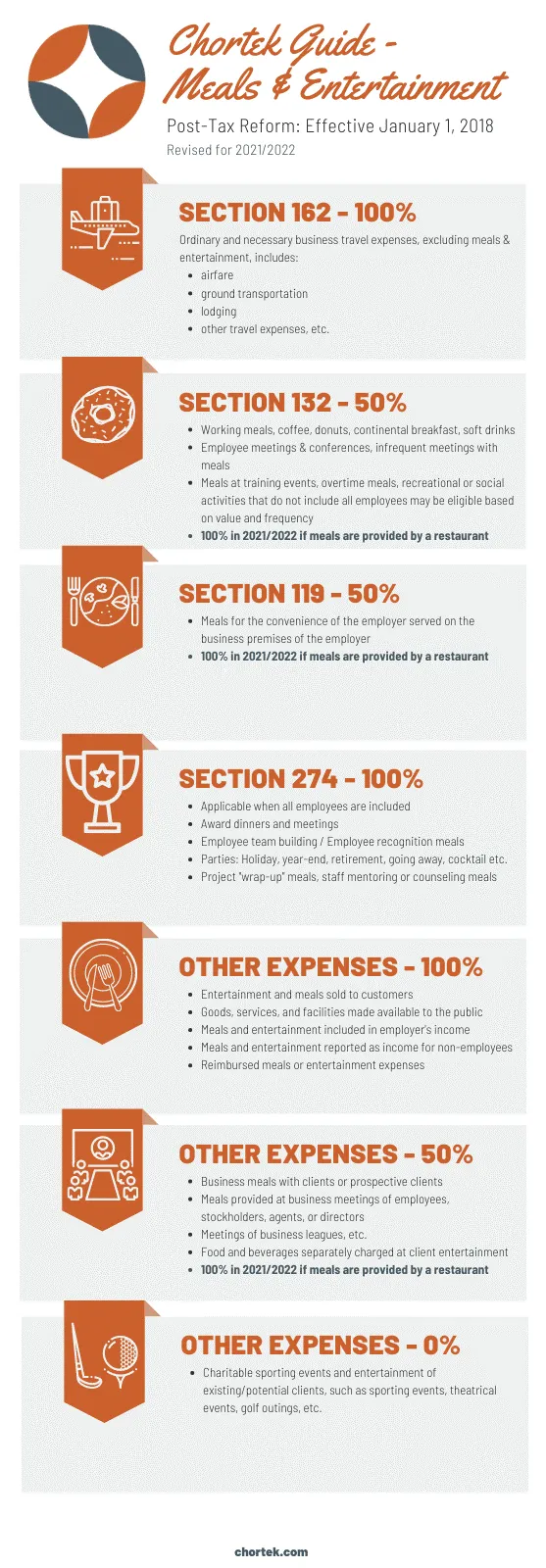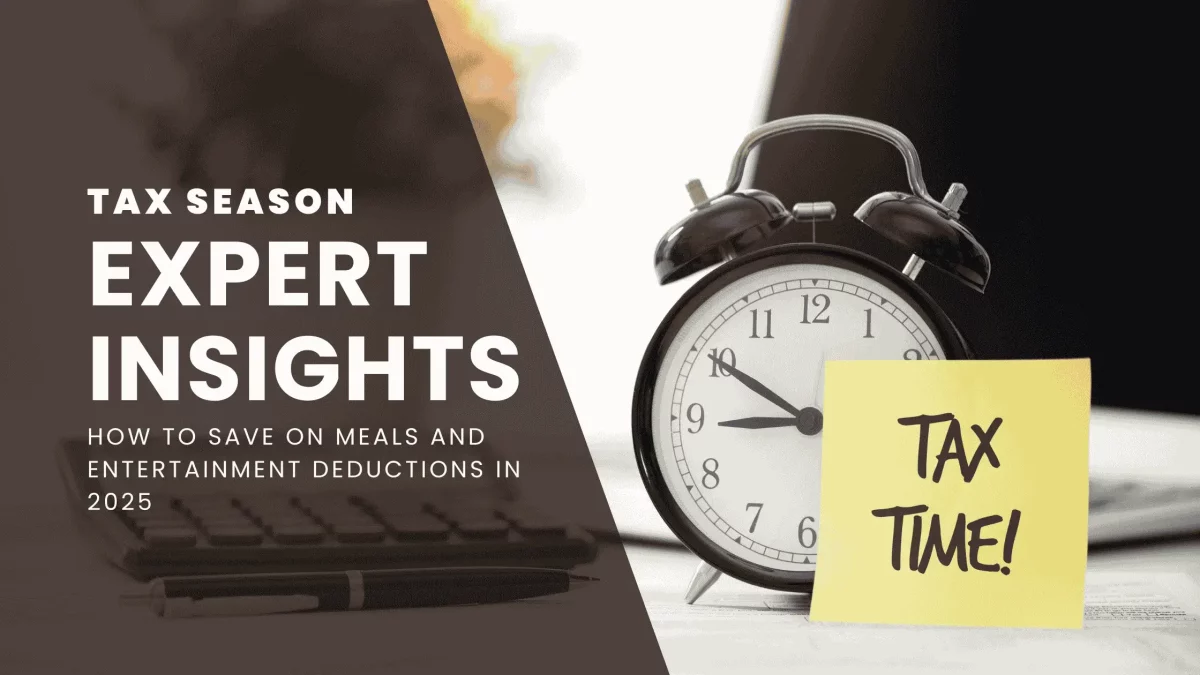How to Save on Meals and Entertainment Deductions in 2025

How to Fill Out Form 982: A Simple Step-by-Step Guide
March 15, 2025
LLC Tax Brackets & Rates: What You Need to Know for 2025
May 15, 2025How to Save on Meals and Entertainment Deductions in 2025
Business dinners, client outings, and team lunches have always been a part of growing and maintaining relationships. But if you’re not careful, these expenses can drain your budget without giving anything back at tax time.
The good news? With the right approach, you can still make the most of meals and entertainment expenses without leaving money on the table. Here’s your updated guide to saving smartly on meals and entertainment deductions in 2025.
What’s Changed in 2025?
The IRS continues to tweak its rules, and it’s important to stay current. After several pandemic-related shifts in previous years, meals and entertainment rules have settled into a more stable rhythm in 2025.
As of this year:
- Most entertainment expenses are not deductible, unless they meet very specific criteria.
- Business meals remain partially deductible—generally at 50%, with some exceptions.
- Employee meals for the convenience of the employer may still qualify for special treatment.
- Meals provided at office parties and similar events are usually 100% deductible.
Let’s break down how you can take advantage of these guidelines and avoid costly mistakes. Also, don’t forget to mark your calendar with all the important tax deadlines so you don’t lose out through penalties.
1. Know What Counts as Deductible Meals
Not every meal eaten on the company card is going to make Uncle Sam happy. To qualify as deductible meals, the IRS generally requires:
- The meal is directly related to the active conduct of your business.
- You (or an employee) are present at the meal.
- The meal isn’t “lavish or extravagant under the circumstances.”
That means a $400 sushi platter for two might raise eyebrows unless you’re pitching a multi-million-dollar deal in Tokyo.
Here’s the key: always document the who, what, when, where, and why. Use apps or expense tracking tools that allow you to attach receipts and jot down a quick note about the purpose of the meal. This simple habit can save you major headaches during an audit.
2. Understand the Exceptions to the Rule
Some meals are 100% deductible. Yep, you read that right. If you’re providing food for a company event, office party, or meals offered to the public (say, at a promotional event), those may qualify for full deductions.
Also, certain travel meals, especially for overnight business travel, are still deductible at the usual 50%. And if you’re buying meals for employees who are working late or are on call, those might qualify as deductible meals under the “convenience of the employer” exception.
The takeaway? Don’t lump all meals into the same category. Know the nuances, and you can boost your deduction rate significantly.
3. What About Entertainment?
Here’s the part where many people slip up. You may be wondering: are entertainment expenses deductible at all in 2025? The short answer is: not usually.
Since 2018, most expenses related to entertainment, like concerts, sporting events, golf outings, are not deductible, even if you’re wooing a client. However, if there’s a legitimate business purpose and the expense meets specific IRS criteria (e.g., food served at a suite during a game where business was conducted), a portion may be deductible.
Another exception: If entertainment is provided as part of employee compensation or benefits, you might be able to deduct some costs. Always check the latest IRS guidelines or, if you have the budget for it, consult a tax advisor before claiming these. Explore our guide on the average cost of tax strategists in 2025 for more clarity.
4. Separate Meals from Entertainment
Here’s one simple trick: separate the receipts. If you’re entertaining a client and there’s food involved, ask for a separate bill for the meal. Even if the entertainment part isn’t deductible, the meal part may still qualify—if properly documented.
For example, if you’re treating a client to dinner and a show, pay for the meal on one receipt and the theater tickets on another. That way, when it comes time to file, your meals and entertainment expenses are cleanly separated—and you maximize your meals and entertainment deduction 2025.
5. Use a Business Credit Card and Track Religiously
Want to make tax time easier and less painful? Use a designated business credit card for all meals and entertainment purchases. This creates a clean paper trail and can help you spot trends or opportunities to cut unnecessary spending.
Also, consider using tools like QuickBooks, Expensify, or other expense management apps that automatically categorize and store receipts. The IRS loves organization, and so will you when you’re not scrambling to find that one coffee shop receipt from nine months ago.
6. Plan Smart and Save Strategically
Finally, don’t treat meals and entertainment expenses as an afterthought. With careful planning, you can align these activities with your broader business goals—and your tax strategy.
For instance, consider:
- Hosting a company-wide quarterly lunch (100% deductible).
- Inviting clients to lunch meetings instead of entertainment-heavy events.
- Scheduling travel-related meals to coincide with business meetings, ensuring they’re deductible meals.
These small shifts in how you structure your business interactions can add up to real savings by year’s end.
Still confused? Here’s a simple visual guide by Chortek that breaks it down beautifully;

Final Thoughts
Trying to survive through the calculations of meals and entertainment deductions in 2025 doesn’t have to be difficult. A tax expert can help you understand what’s deductible, assist you with careful documentation, and help you plan with purpose. Monily’s experts can turn everyday business expenses into powerful tax-saving tools!
So, next time you sit down for that business lunch or plan a client meet-up, remember: what you deduct, and how you deduct it, can make all the difference, and if you bring an expert on board, you won’t have to constantly worry about it all! We can lighten the load.
Shoaib Jamil
Muhammad Shoaib is a Manager of Product Development at Monily, where he leads a team of bookkeepers and financial controllers, overseeing tax returns and client management. With experience in accounting software like SAP, Oracle, and QuickBooks, he has played a vital role in implementing new ERP systems and bettering accounting processes for many different brands. Before Monily, he held key roles at Arthur Lawrence Pakistan and Samsung, where he worked on internal controls and improved financial reporting. Muhammad is a CPA and holds an M.Com from the University of the Punjab.






